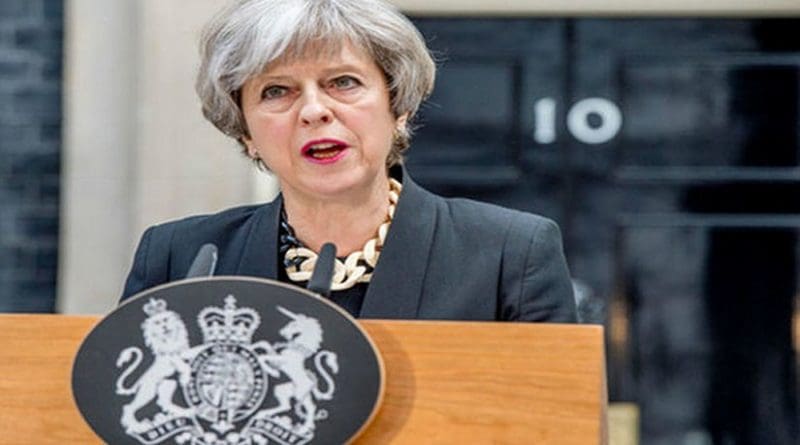Britain’s Manufactured Crisis With Russia – OpEd
The so-called Skripal affair involving the poisoning of a former Russian spy and his daughter earlier this month, has rapidly morphed into a major inter-state crisis between United Kingdom and Russia.
Putting blame before the evidence, this evolving crisis, resulting in the expulsion of nearly two dozen Russian diplomats from London bound to be reciprocated by Moscow, has all the markings of a dirty British trick to frame and discredit the Russian President Vladimir Putin on the eve of the Russian presidential elections. Ramping Putinphobia for both domestic political and external geopolitical purposes, the Skripal affiar is definitely for history books, likely to yield scathing criticisms of the British government by the future historians.
As this incident has been raised to the level of an international crisis warranting the UN Security Council’s attention, it is important to highlight the implausible holes in the official British account, beginning with Prime Minister Theresa May’s categorical either or, i.e., either the Russian government has done it or its lax security allowed the nerve gas to find its way to UK soil, which raises the question of why narrow the net of suspects when there are other states, including Israel and perhaps UK itself, which possess the chemical weapon known as Novichok.
After all, as reported in the British (and Irish) press, the victims were found only a few miles away from a British lab where UK scientists have been busy for years analyzing and reproducing various nerve agents.
Clearly, this nerve gas wasn’t potent enough to kill its targets, as both the victims are in “critical but stable” condition per the wire reports, thus raising the possibility that we are dealing with a far less dangerous nerve gas, given the fact that the British government has so far declined Moscow’s request for a sample of the evidence, in line with the protocol of the chemical weapons convention, and obviously one wonders why? Old habits die hard and this inevitably reminds one of the British pseudo-evidence against Sadddam Hussain in 2002-2003 that the mainstream British media adopted as facts.
Another reason to seriously doubt the British allegation in addition to the rapidity of the anti-Russian accusations before presenting an clear-cut evidence is the timing of it, on the eve of the presidential elections in Russia, thus being tantamount to an indirect meddling in Russian internal affairs, seeking to poison Putin’s name with the Russian electorate. Putin would have to be mad to contemplate such a brazen action at this crucial juncture and only by succumbing to a vile demonization of Putin is it possible to seriously entertain a Russian hand in this affair.
Sergey Skripal, a swapped former spy, did not pose any threat to Putin or Russia as far as we know, he lived under his own name and was involved with the former British spy who put the infamous Trump dossier together for Hillary Clinton campaign, so there could be plenty of other motivations and other actors involved worth investigating instead of zeroing in on the Kremlin.
Again, the quickness with which May attributed responsibility to Putin’s government and took punitive actions speaks volumes about the sinister intentions behind it. Contrary to May, there is a third plausible scenario, namely, a well-orchestrated anti-Putin campaign to frame him with the nerve gas attack and thus to discredit him at home and abroad, as part of the western geopolitical game of strategy against Russia.
At a time when the US high military officials have openly admitted that the Syrian conflict is lost to Russia and Iran, this is tantamount to a rather crude revenge tactic that has the entire force of the western propaganda machine enlisted behind it, manufacturing a fresh pile of Russiaphobia, hoping to reverse some of Mr. Putin’s recent geopolitical gains.
To conclude, Theresa May is clearly no Mother Teresa, has aptly filled Blair’s shoes, may achieve a short gain on the Russian adversaries yet has assured her destiny in history books as yet another Machiavellian British politician respecting no limits in propaganda warfare against the perceived enemies.

